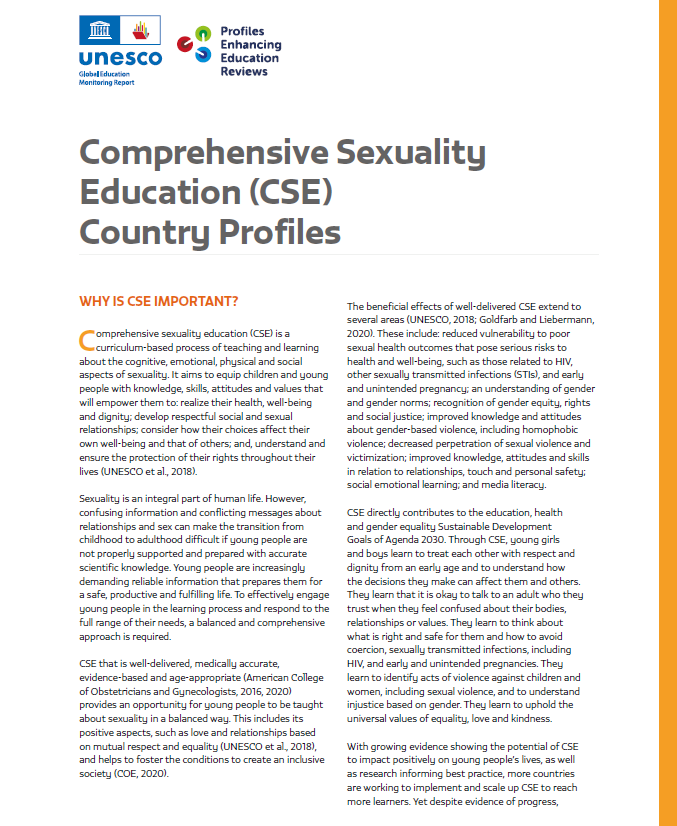Comprehensive sexuality education (CSE) is often looked at and judged upon from an angle of social norms, morals and traditions. This is wrong. It should be looked at from an educational, skill building point of view, which is context relevant and specific.
Shrouded in shame and secrecy, the stigma and taboo around comprehensive sexuality education make it difficult to initiate and engage in conversations about it.
Schools and parents, two major sources of information for young people while growing up, tend to avoid or shy away from discussing these issues. They fear that the more the information given, the more likely it is that young people will experiment and engage in sexual behavior, even if there is no evidence or studies to support this claim.
CSE is needed for all children and youth around the world
The need for CSE is not particular to any specific country, region or age group. Children and young people all around the globe are vulnerable to sexual and gender-based violence, misinformation about sex, gender roles, relationships, sexuality and much more.
These limitations or restrictions take away young people’s agency, compromising their chance at living up to their fullest potential.
Be it information on changing bodies, puberty, sex, sexual and reproductive rights, gender identity, sexual orientation, gender roles, consent, sexual harassment and gender-based violence, too many young people do not have access to accurate and reliable information and services that enable informed decision making.
Comprehensive sexuality education is key to create avenues for resources and discussion spaces on sexuality and related issues. Three areas should be prioritized:
- Young people in all their diversity should be included in the process of developing and updating CSE curriculum regularly, to ensure it responds to their specific needs.
- We need to scale up all types of CSE that are engaging for young people, curated from a human centered approach with youth-friendly teaching and learning methodologies, including on digital channels. But at the same time not forgetting the value of non-digital learning.
- We must be strategic in how we promote CSE: we must tailor interventions and advocacy to actors who are open to CSE but not yet committed. We need to focus on our allies and build our network to create demand for CSE from the ground up.


